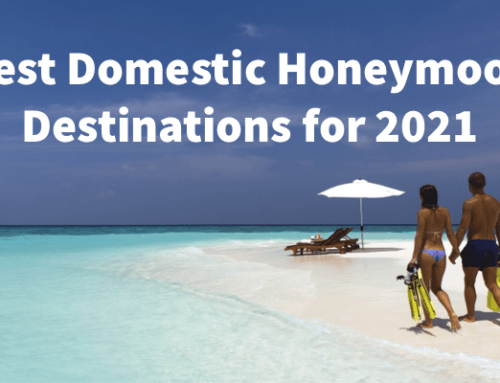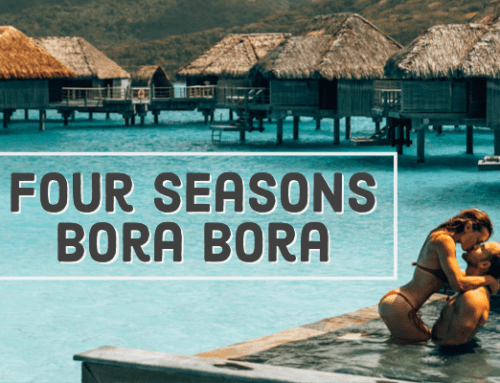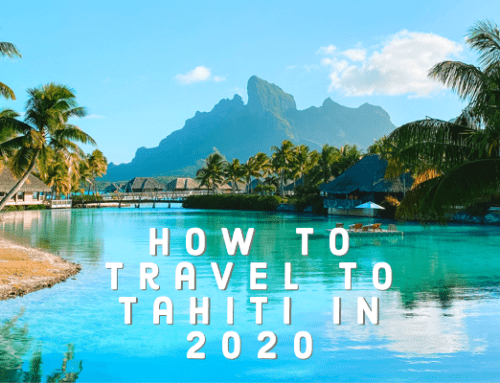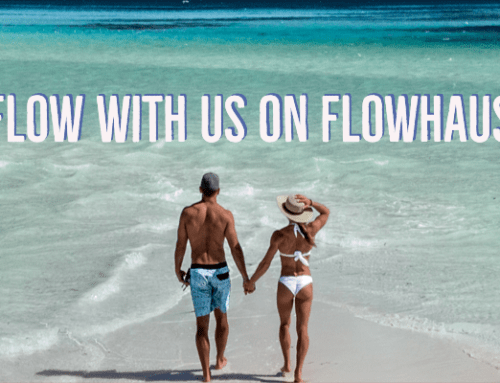It had been 243 days since we stepped on an international flight. 8 whole months since we had felt the butterflies of boarding and the anticipatory excitement of travel. With the lack of information and the omnipresent undercurrent of anxiety, we didn’t feel comfortable flying for a very long time. However, with new safety protocols put into place, we decided to travel to a country with one of the strict COVID entry guidelines in the world – and one of the few places allowing Americans to visit in 2020: French Polynesia. Just as we put a seatbelt on to drive our car, we put a mask on when we board the plane. With all of these items in mind, we considered flying during COVID (specifically this flight) to be a responsible risk.
What’s Different?
Flying during COVID is not the same as it was in 2019, but neither is the world. We weren’t sure what to expect, but we were pleasantly surprised with the precautions that United Airlines implemented to keep every single passenger safe. United Airlines rolled out CleanPlus, their safety and cleaning initiative with the following protocols:
- “Using electrostatic spraying to disinfect the cabin, floor to ceiling, on all aircraft before departure.”
- “Using Ultraviolet C (UVC) lighting wands to disinfect sensitive components like switches and touch-screen displays in our pilot flight decks.”
- “Using state-of-the-art high-efficiency (HEPA) filters on all United aircraft to circulate air and remove at least 99.97% of airborne particles. We’ll use these filters during boarding, throughout your flight and during deplaning.”
- “Reducing touchpoints by temporarily shutting down self-service kiosks, asking you to scan your boarding pass and encouraging you to use united.com or the United app.”
- “Installing sneeze guards at key interaction points like baggage and check-in counters”

Masks are required except when briefly eating and drinking
Here are some of the differences of the airport and flight experience:
- The airports have contactless check-in and barrier between any airlines representatives to keep both parties safe.
- We had to show printed proof of our negative RT-PCR (government approved) COVID test to board the flight. (That means EVERYONE on the flight tested negative in the past 72 hours).
- We were handed industrial grade sanitizing wipes upon boarding.
- The airports and airplanes are cleaner than ever. The airplanes are expertly sanitized between every flight.
- The air was recirculated every 2-3 minutes in the cabin.
- The drink menu was severely reduced.
- We wore masks the entire flight (everyone is required to – including flight attendants).
- We were extra careful in the days leading up to the flight and on the flight because we knew we were getting tested AGAIN 4 days after we landed.
- We felt SAFE because of the above precautions.

What do I need to know about traveling to Tahiti?
When it comes to the precautions for Tahiti, there are strict and effective protocols that have allowed the country to open for tourism, which made us feel safe flying during COVID. International travel is more than possible in 2020 thanks to these protocols that the government has put in place to ensure everyone’s safety. Prior to boarding the flight to Tahiti, we had to complete the following:
- Proof of a negative RT-PCR test within 72 hours of the international flight departure (check the Tahiti Tourism site for a list of approved tests. The rapid test is not approved). This can be difficult to find in certain states so talk to your doctor to guarantee results in 72 hours.
- Print out your test with the negative results, your full name, and the date of test. Proof of this will need to be shown while boarding and when you land.
- Register on the Tahitian Electronic Travel Information System (ETIS) and print this out. Proof of this will need to be shown while boarding and when you land.
- Wear a mask for the flight except when eating and drinking.
- Purchase travel insurance that covers COVID costs.
- Take an additional COVID test four days after your arrival in French Polynesia. This further ensures your safety and the safety of others on the islands.











Leave A Comment